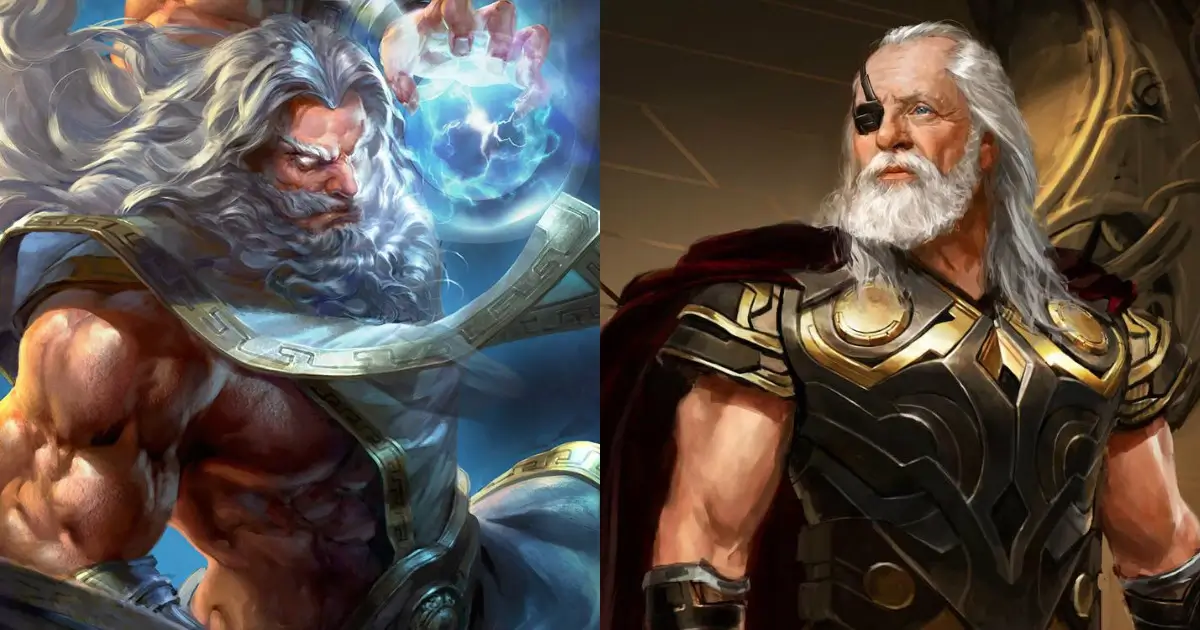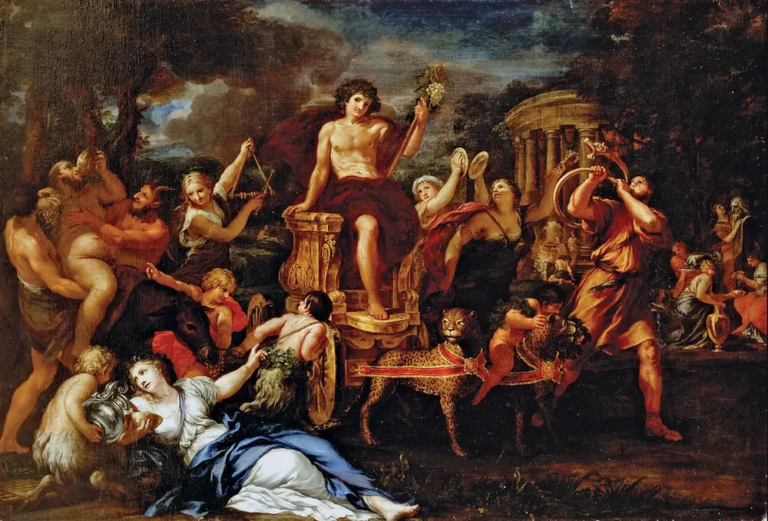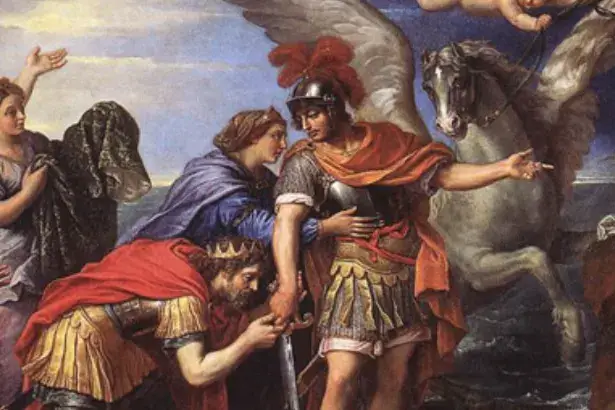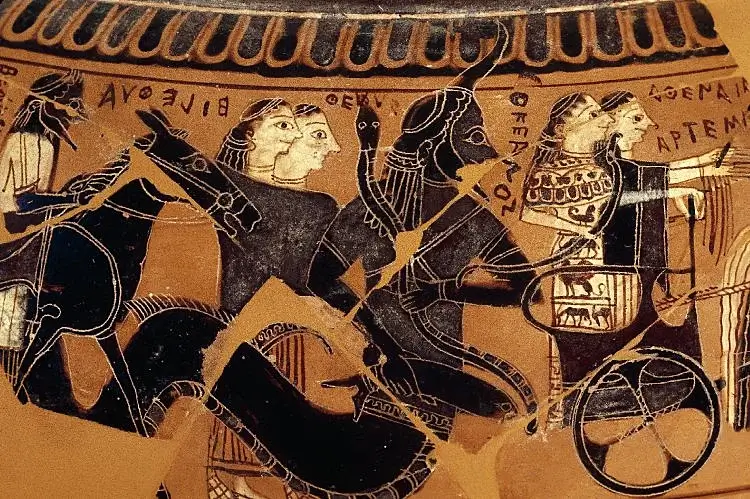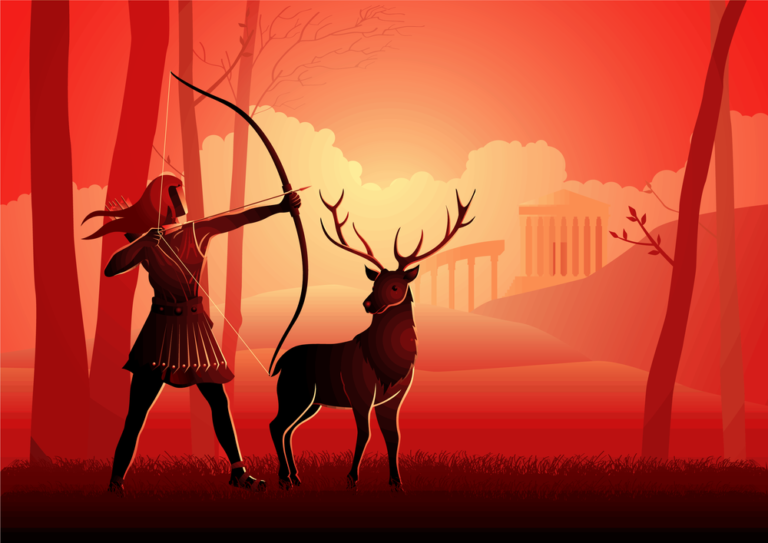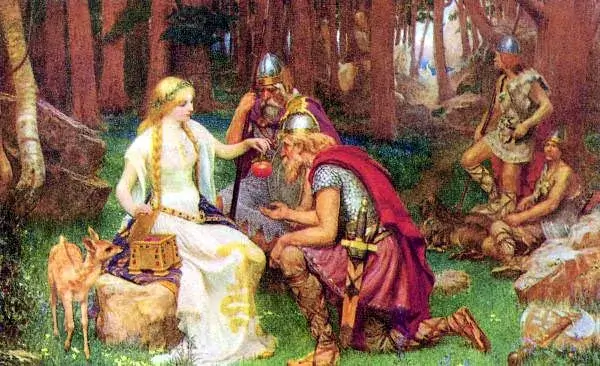Battle of Mythical Gods: Zeus vs Odin
Are you a fan of Norse mythology? Are you interested in comparing the two most powerful gods of the Norse pantheon – Zeus and Odin? If so, this blog post is for you! Join us as we explore the similarities and differences between these two powerful deities, and discover why they remain popular figures in modern society.
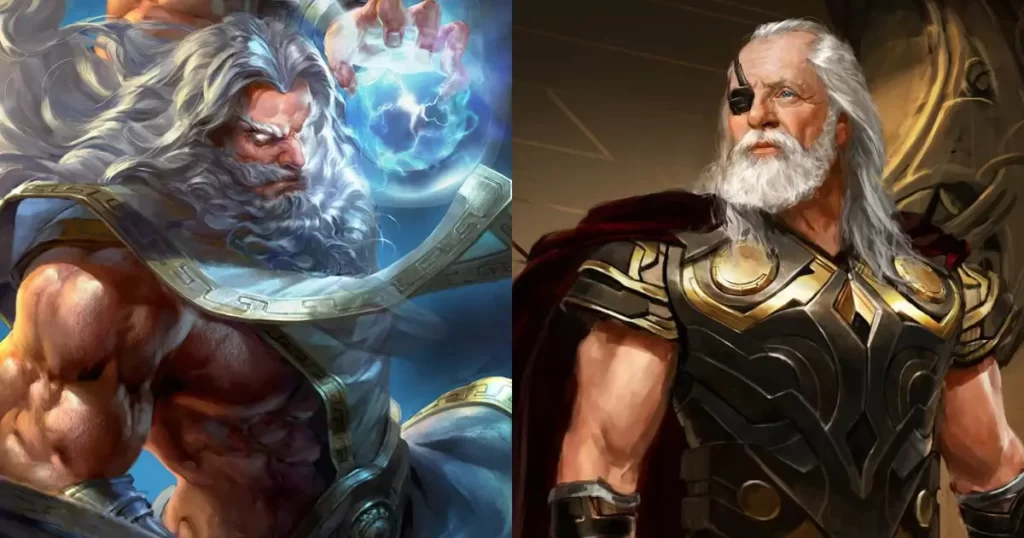
Overview of Zeus and Odin
Zeus and Odin are two of the most powerful gods in ancient mythology. While they have many similarities, such as being kings of their pantheons and having immense powers, there are some key differences between them. Zeus is from Greek mythology and is known for his powers over lightning and thunder, while Odin is from Norse mythology with powers associated with magic. Zeus is the king of all Greek gods, while Odin is one of the most powerful magicians among the Æsir. Additionally, Zeus has ultimate authority over other beings, all parts of the universe, and cosmological phenomena in some traditions; whereas Odin’s wisdom surpasses his physical strength. In conclusion, although both gods were respected by their followers for their power and abilities, they differed greatly in terms of origin stories, abilities, and strengths.
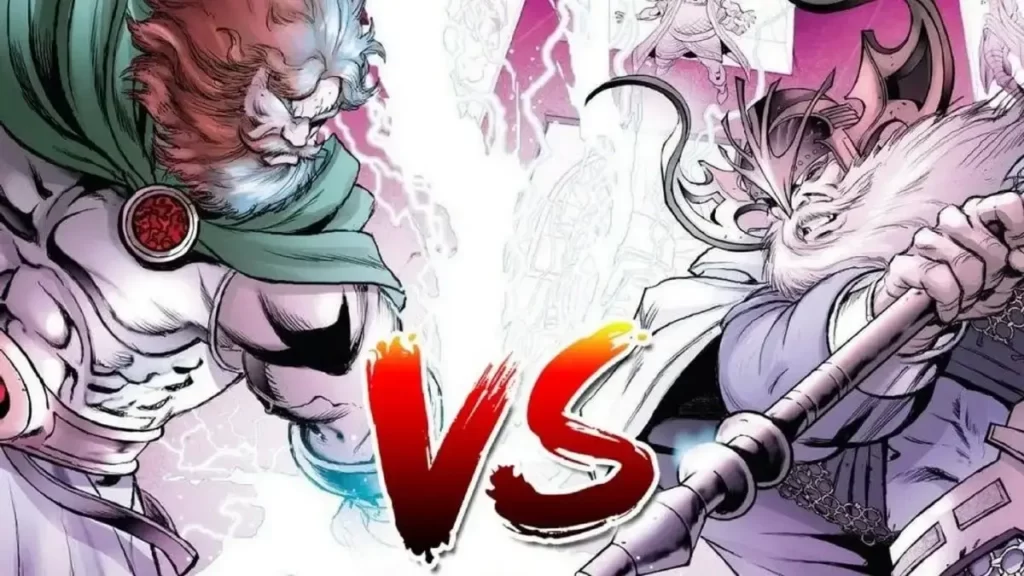
Origins and Mythology
Zeus and Odin are two of the most powerful gods from different mythologies. Zeus is the king of the gods in Greek mythology, while Odin is the king in Norse mythology. Both gods have immense power, but Odin is said to be three times more powerful than Zeus.
Odin has many names and titles, including All-Father, chief of the Norse gods, and leader of the Aesir. He is known for his unmatched magical prowess and cunning tactics in battle. Unlike Zeus, Thor is not the ruler of men or all gods but rather a protector. His short-handled hammer, Mjölnir, can create storms and lightning bolts with a single swing.
Odin has been revered as a god since ancient times due to his many powers and abilities. One example includes being able to read minds from a distance; he was also able to use runes as a means to communicate with other deities and humans alike. He was known for his knowledge of various aspects such as astronomy, history, and literature among others. Additionally, Odin could travel between realms using his eight-legged horse called Sleipnir which he rode during his journeys through Asgard (the land of Gods).
In contrast with Odin

Physical Appearance and Personality Traits
Zeus and Odin are two of the most powerful gods in Norse and Greek mythology. Both gods have strong personalities, incredible abilities, and a fierce rivalry between them. In terms of physical appearance, Zeus is usually depicted as a muscular man with long white hair and a beard. He often wears a crown or laurel wreath to signify his status as king of all gods. Odin is also often portrayed as an older man with a long grey beard, but he usually has only one eye due to his sacrifices for knowledge.
In terms of personality, Zeus is known for being proud, vengeful, and temperamental. He is also associated with justice and order, which makes him the protector of truth and morality. Odin is more complex than Zeus in many ways; he is wise but can be ruthless when it comes to battle or protecting his people. Odin also has strong connections to war, death, magic, wisdom, poetry, and runes.
Both gods are powerful figures in their respective religions who have been revered for millennia by their followers. They represent different ideals that can help us understand our own lives better: Zeus stands for justice and order while Odin stands for knowledge and courage in the face of adversity.

Powers, Abilities, and Domains
Powers & Abilities include:
1. Immortality: Zeus is immortal and ageless, and will not die of old age or sickness.
2. Superhuman Strength: Zeus possesses immense superhuman strength that surpasses that of any other Olympian god or goddess. He can lift mountains with ease and is strong enough to take on entire armies single-handedly.
3. Weather Manipulation: Zeus can manipulate the weather to create lightning, thunderstorms, rain, and snow, as well as able to call down bolts of lightning from the sky when he requires them.
4. Flight: Zeus can fly through the air at incredible speeds using his wings or by using his magical chariot pulled by two winged horses called Pegasus and Xanthos.
5. Shapeshifting & Illusion Casting: As a master of manipulation he can cast illusions upon anyone he wishes, making them see things that are not there or changing their memories completely if needed. He also has the power of shapeshifting, allowing him to change his physical form into any creature he desires, even into one of a different gender if needed for disguise purposes.
6. Animal Empathy & Communication

Relationships with Other Gods
Zeus and Odin are two of the most powerful gods in mythology. Both were powerful leaders of their respective pantheons, had control over the elements, and commanded armies of divine beings. While they may have similar powers and abilities, their relationships with other gods differed greatly.
Zeus was the ruler of the Olympian pantheon, which included his siblings like Poseidon, Hades, Demeter, and Hestia as well as other gods like Apollo and Athena. His relationship with his siblings was sometimes strained due to a rivalry for dominion over Olympus but overall he maintained a good relationship with them until it was disrupted by outside forces. Zeus also had many relationships with mortals such as Hercules and Perseus who he aided in their journeys or granted wishes on occasion.
Odin on the other hand governed over the Norse Pantheon which included his brothers Vili and Ve as well as various other gods such as Thor, Freya, and Loki. His relationships with these deities were mostly based on respect although sometimes things became tense when Odin’s will was not followed or an insult occurred between them. Additionally, Odin had close ties to mortal heroes such as Beowulf whom he assisted in times of need.

How They Are Represented in Popular Culture
Zeus and Odin are two of the most popular gods in mythology, and their rivalry has been a source of fascination for centuries. Zeus is the Greek god of the sky and thunder, while Odin is the Norse god of wisdom and war. The two gods have been represented in various forms throughout popular culture, from comics to movies to video games.
In terms of power, it’s generally accepted that Odin is three times stronger than Zeus due to his access to magical powers such as runes, shape-shifting, and necromancy. In terms of physical strength, however, Zeus is typically seen as the superior fighter. This can be seen in Marvel’s Thor movie series where Loki (Odin’s son) was no match for Thor (Zeus’ son). This dynamic has also been explored in recent video games such as God Of War 4 where Kratos (a demigod who served Zeus) fights against Baldur (the son of Odin).
In terms of representation in popular culture, both gods have had their fair share of appearances over the years. For example, Zeus appears in films like Hercules and Clash Of The Titans while Odin appears in films like Thor: Ragnarok or Marvel’s Avengers:

Responses to Mortals’ Prayers
Zeus and Odin are two of the most powerful gods in ancient mythology. Both gods have vast powers and influence and mortals often look to them for guidance, protection, and assistance. While both gods have similar abilities, their strength levels vary significantly. Zeus is the ruler of the Greek Pantheon and is known to be the most powerful among all the gods. He is a master of lightning and thunder, can control nature, manipulate fate, and bestow boons upon mortals. On the other hand, Odin rules over Asgard as King of the Norse Gods. He is an incredibly powerful god who possesses an array of magical gifts such as wisdom, knowledge, foresight, shape-shifting abilities, necromancy, and magical weapons/tools/items. In terms of strength levels, Odin is three times more powerful than Zeus due to his additional powers which give him an edge in the battle against any opponent. As a result of these enhanced capabilities, mortals often direct their prayers toward Odin rather than Zeus when needing help with difficult situations or challenges.

Differences in Their Relationship with Humans
The relationship between Zeus and Odin is one of contrast. Zeus is considered the king of the Greek gods, while Odin is the chief god of the Norse pantheon. Zeus was typically portrayed as a powerful ruler, wielding thunderbolts to punish wrongdoers. By contrast, Odin was more of an all-knowing sage, offering wisdom and guidance to those who seek it. He also had a darker side, often resorting to trickery and disguises to achieve his goals. Both gods have been seen as bringers of justice and were revered by their respective cultures for their power and wisdom. However, they differ in their approaches – Zeus with his direct power and Odin with his clever manipulation.
Dealing with Conflict and War
In the Marvel Cinematic Universe, Asgardians and Olympians have been pitted against each other for centuries. It all started between Odin, the All-Father of Asgard, and Zeus, the ruler of Olympus. When Kratos was introduced in God of War (2018), it showed us a new angle on this conflict: a mortal’s perspective.
Kratos had to face off against several Gods from both sides during his journey and it was only by gaining their knowledge and understanding he could progress. This can serve as an example when dealing with conflicts between people who are part of different cultures or societies, be they religious or political.
The Norse god’s influence can bring more nuance to this conflict as Odin is not only a powerful leader but also a wise one who values knowledge above all else. On the other hand, Zeus is known for his fiery temper and reckless decisions making him an unsuitable leader at times.
It is important that when dealing with conflicts between different sides we take into account all aspects such as history, culture, and religion to understand each side better which ultimately leads to more effective solutions instead of brute force alone. Thus, taking cues from God of War’s representation

Rituals Associated with Each God
Zeus and Odin are two of the most powerful gods in mythology. Both have a long and storied history, with ancient cultures worshipping them in different ways. Despite their differences, both gods share many similarities: they are powerful, respected figures who have come to represent strength and wisdom.
Zeus is the king of the Greek gods and lord of the sky, weather, law, and fate. He was known as a powerful ruler who could be both gentle and stern depending on his mood. He was often depicted with a lightning bolt or eagle in his hand as a symbol of his power over the heavens. Rituals associated with Zeus included prayer offerings to him for protection from bad weather or ill fortune; sacrifices were also offered to appease him when he was angry or displeased.
Odin is one of the main gods in Norse mythology and is associated with war, wisdom, magic, poetry, and death. He was often portrayed as a one-eyed old man wearing a wide-brimmed hat and carrying a staff or spear called Gungnir – symbols of his authority over all things spiritual. Rituals associated with Odin include praying for knowledge before undertaking difficult tasks; offering sacrifices to Odin for guidance during battles; burning
What We Can Learn from Them Today
Zeus and Odin are two of the most iconic gods in mythology. Both were powerful figures in their respective pantheons and had great influence over their people.
Zeus was the king of the gods in Greek mythology and was said to be the ruler of the sky, thunder, lightning, and justice. He is often depicted as a powerful figure who could control natural elements such as storms. He was also known for his wisdom and strength, which enabled him to make decisions that would benefit his people.
Odin was the chief god of Norse mythology and held a similar role to Zeus in terms of ruling over other gods and being a wise leader for his people. He is mainly associated with war, wisdom, knowledge, and poetry. He was also responsible for bringing runes (an alphabet used by ancient Germanic peoples) to mankind.
Both Zeus and Odin inspired those who followed them. They symbolized courage, strength, wisdom, justice, and power; qualities that many still aspire to today. From these two figures, we can learn important lessons on how to lead with fairness while keeping our strength intact – something which can be applied both personally or professionally even today!
Historical Significance of Both Gods
Zeus and Odin are two of the most iconic gods in ancient mythology. They represent strength, power, and wisdom, and have had a lasting impact on our culture.
Zeus is the Greek god of thunder, lightning, storms, and law. He is often depicted as a powerful figure with a long beard and lightning bolts in his hands. He ruled over Mount Olympus as the King of Gods and was worshipped by the Greeks for his strength and power. He is also said to be responsible for creating many of the natural phenomena found on Earth such as rainbows, storms, hurricanes, earthquakes, volcanoes, etc., which were often seen as signs of his divine power.
Odin is an important figure in Norse mythology. He is known as All-Father or Ruler of Asgard and he is typically represented as an elderly man with one eye – usually blue – carrying a spear called Gungnir in his hand. As the chief deity among all gods, he was responsible for overseeing battles between gods and giants while at the same time protecting humanity from harm through his wisdom and knowledge. Odin was respected by both gods and men alike due to his immense power over life itself – it was believed that he alone could determine who would live or die in
The Legacy of Zeus vs. Odin
The legacy of Zeus and Odin is a long and complex one, spanning centuries of mythological stories. Both gods are seen as powerful leaders of their respective pantheons, with each embodying different aspects of strength and power. Zeus is the Greek god of thunder, the embodiment of strength and power. On the other hand, Odin is the Norse God of War, who inhabits Asgard; the dwelling place of the Norse gods. In THOR ANNUAL (1966) #5, it was revealed that both Zeus and Odin had struck a similar pact between Olympus and Asgard long ago to keep the peace between them.
Over time, each god’s powers have been interpreted in different ways. It has been suggested that while Zeus is an all-powerful ruler who has dominion over all things in the world; Odin’s role as ‘Allfather’ or father-of-the-gods is more indicative of his literary theme from later sources. Furthermore, Thor – son to both Zeus and Odin – still holds divine royalty status though he does not rule directly over any particular domain.
Throughout history, these gods have been seen in conflict with each other several times; most notably during Ragnarok where it was said that Thor must face off against his

Modern Representations of These Gods
The release of the movie, When Zeus: King of the Gods, on January 5, 2010, showcased a modern representation of the Greek God, Zeus. This movie portrays Zeus as a powerful ruler with a strong sense of justice and morality. He is seen as a protector of both mortals and gods alike who will not shy away from punishing those who break his laws.
Odin is an equally powerful Norse God and has also been represented in modern times. Odin is often portrayed as wise and all-knowing; he values knowledge, wisdom, and courage above all else. Odin is often seen as a warrior king who will fight for justice when necessary but at other times he can be benevolent granting favors to those that please him.
Both gods are symbols of strength, justice, power, and wisdom in their respective religions and have become popular characters in books, movies, television shows, and video games over time. While they share many common traits there are also subtle differences between their characters that make them distinct from one another. Ultimately it can be said that these two gods represent very different aspects of power while still retaining an underlying sense of morality which makes them popular figures in modern culture today.

Conclusion
In conclusion, Odin has the edge over Zeus in terms of wits and wisdom. While both are powerful gods, Odin’s vast range of powers and immense wisdom gives him an advantage over Zeus. Furthermore, Odin’s ability to manipulate fate and destiny gives him a distinct advantage in any battle of wits or wisdom. Ultimately, while both gods are incredibly powerful, Odin’s cunning intellect makes him the superior god in a battle of wits and wisdom.
